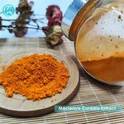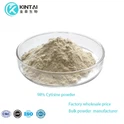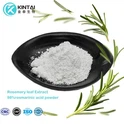Artesunate powder is a medication derived from artemisinin, a compound found in the sweet wormwood plant Artemisia annua. Artesunate is primarily used for treating malaria, an infectious disease caused by Plasmodium parasites and transmitted through the bites of infected Anopheles mosquitoes. While artesunate powder is widely recognized for its efficacy in combating malaria, recent research has unveiled its potential for various other applications beyond its traditional use.
Medical Uses of Artesunate Powder
The primary medical use of artesunate powder remains the treatment of uncomplicated and severe malaria infections. Artesunate is a semisynthetic derivative of artemisinin and serves as an artemisinin-based combination therapy (ACT) recommended by the World Health Organization (WHO) for the treatment of malaria. As an antimalarial agent, artesunate works by targeting and disrupting the life cycle of the Plasmodium parasite responsible for malaria infections.
Artesunate has proven highly effective in reducing the parasite burden in the bloodstream and alleviating the symptoms associated with malaria, such as fever, chills, and fatigue. When administered intravenously, artesunate is particularly valuable in treating severe cases of malaria where the infection has progressed to potentially life-threatening complications like cerebral malaria.
The mechanism of action of artesunate in combating malaria is complex and not fully understood, but it is believed to involve the generation of reactive oxygen species (ROS) that damage the Plasmodium parasite's membranes and macromolecules. Additionally, artesunate may inhibit the breakdown of hemoglobin by the parasite, depriving it of essential nutrients for growth and replication.
Anti-inflammatory and Immunomodulatory Effects
Beyond its antimalarial and anticancer properties, artesunate powder has also been investigated for its potential anti-inflammatory and immunomodulatory effects. Several studies have suggested that artesunate may possess anti-inflammatory properties and modulate the immune response.
Artesunate has been shown to inhibit the production of inflammatory mediators such as cytokines and prostaglandins. These anti-inflammatory effects may be beneficial in conditions characterized by excessive inflammation, such as autoimmune disorders, rheumatoid arthritis, and certain chronic diseases like inflammatory bowel disease (IBD).
Furthermore, artesunate powder may exhibit immunomodulatory effects by regulating the activity of various immune cells, including T cells, B cells, and macrophages. This could have implications for the treatment of conditions involving dysregulated immune responses, such as autoimmune diseases.
For example, in autoimmune disorders like lupus and multiple sclerosis, artesunate may help modulate the overactive immune response and reduce inflammation, potentially alleviating symptoms and slowing disease progression. Additionally, in cancer, artesunate's immunomodulatory effects may enhance the body's anti-tumor immune response, making it a potential adjuvant therapy alongside traditional cancer treatments.
Considerations and Safety Profile
While artesunate powder has demonstrated promising therapeutic potential in various contexts, it is crucial to consider proper dosage, administration methods, and potential side effects.
Artesunate is generally well-tolerated, but can cause side effects such as diarrhea, nausea, vomiting, and occasionally neutropenia (low white blood cell count) in some individuals. Careful monitoring and adherence to recommended dosages are essential to minimize the risk of adverse reactions.
It is important to note that the use of artesunate powder for non-malaria-related conditions is still in the experimental stages and requires further research and clinical trials to establish its safety and efficacy. Individuals should consult with healthcare professionals before considering the use of artesunate powder for any conditions beyond malaria treatment.
Additionally, the potential for drug interactions should be considered, as artesunate may interact with certain medications, including antiretroviral drugs used for HIV treatment and certain antiepileptic drugs.
Ongoing Research and Future Directions
The exploration of artesunate's diverse therapeutic applications is an active area of research, with ongoing studies investigating its potential in various medical fields.
In oncology, clinical trials are underway to evaluate the efficacy and safety of artesunate in combination with standard chemotherapy regimens for different types of cancer. Researchers are also exploring the use of artesunate in combination with other natural compounds or targeted therapies to enhance its anticancer effects and overcome drug resistance.
In the field of autoimmune and inflammatory disorders, preclinical and clinical studies are investigating the anti-inflammatory and immunomodulatory properties of artesunate, with a focus on conditions like rheumatoid arthritis, lupus, and inflammatory bowel disease.
Furthermore, researchers are exploring the potential of artesunate in neurodegenerative diseases, such as Alzheimer's and Parkinson's disease, where its antioxidant and anti-inflammatory properties may play a protective role.
Ongoing research is also aimed at improving the delivery and bioavailability of artesunate through various formulations and nanoparticle-based delivery systems, enhancing its therapeutic efficacy while minimizing potential side effects.
Conclusion
Artesunate powder, a derivative of artemisinin, has long been recognized for its effectiveness in treating malaria infections. However, recent research has shed light on its diverse potential applications beyond its primary role as an antimalarial agent.
Studies have explored the anticancer properties of artesunate, suggesting its ability to induce apoptosis in cancer cells, inhibit tumor growth, and potentially overcome drug resistance. Furthermore, artesunate powder has demonstrated anti-inflammatory and immunomodulatory effects, with potential implications for the treatment of autoimmune disorders, inflammatory conditions.
While these emerging applications hold promise, it is crucial to approach the use of artesunate powder with caution and under the guidance of healthcare professionals. Ongoing research and clinical trials will continue to unravel the therapeutic potential of this remarkable compound and pave the way for its responsible and effective utilization in various medical contexts.
Our Artesunate Powder Bulk has received unanimous praise from customers. If you would like to know more about this product, please feel free to contact Sales@Kintaibio.Com.
References:
1. World Health Organization. (2022). Malaria.
2. Krishna, S., Bustamante, L., Haynes, R. K., & Staines, H. M. (2008). Artemisinins: their growing importance in medicine. Trends in Pharmacological Sciences, 29(10), 520-527.
3. Efferth, T. (2017). From ancient herb to modern drug: Artemisia annua and artemisinin for cancer therapy. Seminars in Cancer Biology, 46, 65-83.
4. Loo, C. S., Lam, N. S., Yu, D., Su, X., & Lu, F. (2017). Artesunate: A putative anticancer drug in the era of nanotechnology. International Journal of Molecular Sciences, 18(8), 1669.
5. Ho, W. E., Peh, H. Y., Chan, T. K., & Wong, W. S. F. (2014). Artemisinins: pharmacological actions beyond anti-malarial. Pharmacology & Therapeutics, 142(1), 126-139.
6. Guo, Z., You, Y., Tan, J., Liu, W., Li, Y., & Zhou, S. (2016). Artesunate inhibits the growth of human gastric cancer cells through the mechanism of promoting apoptosis. Anticancer Drugs, 27(6), 540-547.
7. Wang, S. J., Gao, Y., Chen, H., Kong, R., Jiang, H. C., Pan, S. H., ... & Zhang, J. H. (2010). Dihydroartemisinin induction of apoptosis in pancreatic cancer cells: Involvement of reactive oxygen species and nuclear factor-κB. Cancer Biology & Therapy, 10(11), 1186-1195.







